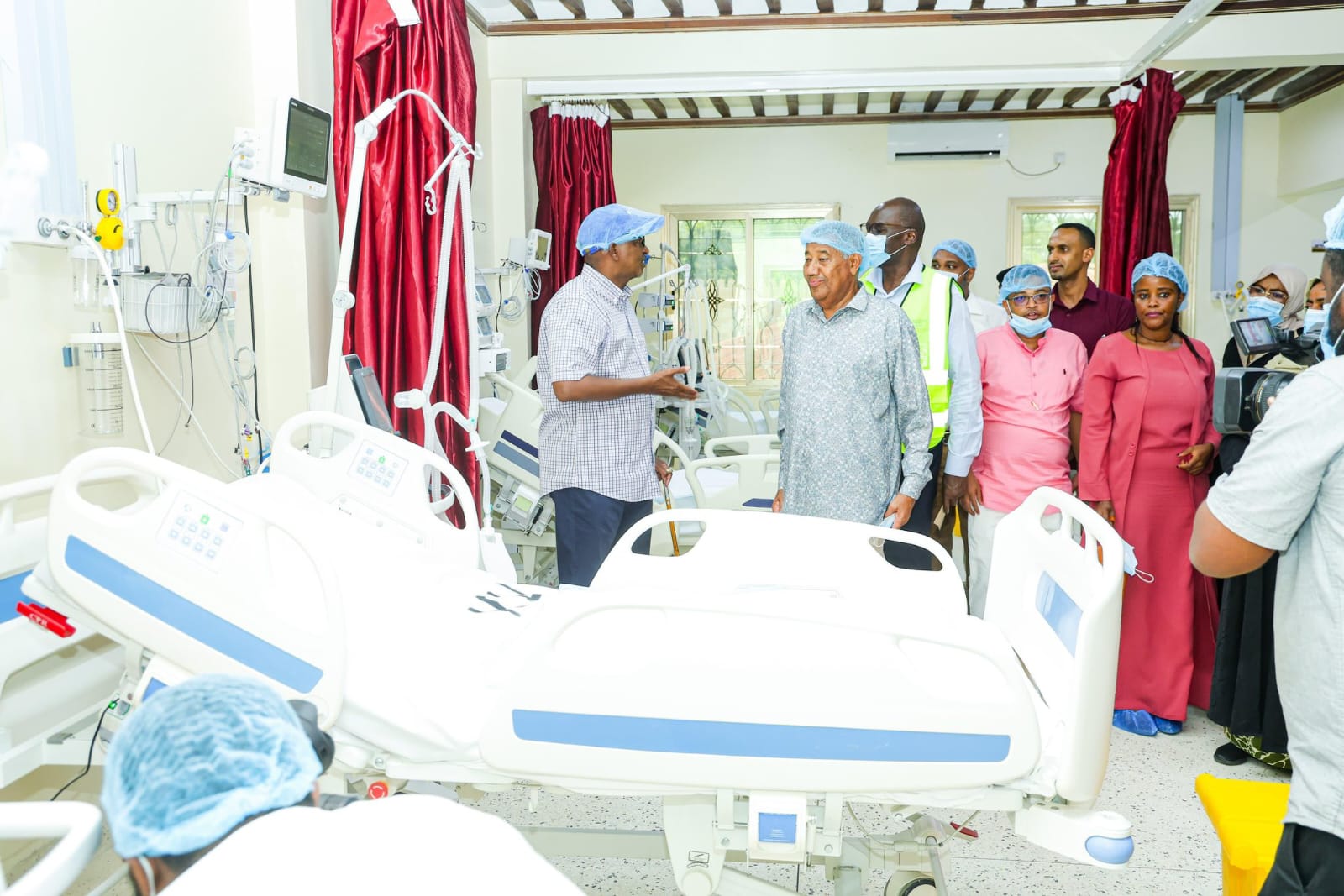Health services in Lamu County received a major boost following the official unveiling of key health infrastructure upgrades at King Fahad Hospital under Phase I of the National Equipment Service Program (NESP) on Thursday.
The upgrades include a new oxygen plant, a five-bed Intensive Care Unit (ICU), the Timamy Suites, and Lamu’s first-ever advanced diagnostic unit featuring a 128-slice Fuji CT scanner.
The milestone is part of steps taken in delivering specialized healthcare services to historically underserved regions as Kenya advances towards achieving Universal Health Coverage (UHC).
Cabinet Secretary for Health Aden Duale said more equipment, including a mammogram and MRI machine, is expected to arrive soon.
CS Duale said this is aimed to further strengthen diagnostic and treatment capacity at the county referral hospital.
He lauded the NESP’s fee-for-service model, noting that it supports sustainability, reduces financial burdens on counties, and enables county-led, needs-based procurement of essential medical equipment.
“These investments are bringing quality healthcare closer to our people and ensuring that no Kenyan is left behind in accessing specialized care,” said Dr Patrick Amoth, Director General for Health.
Lamu Governor Issa Timamy welcomed the upgrades, describing them as “a game-changer” for the coastal county.
“This is a historic moment for Lamu. Our residents can now access life-saving critical care and advanced diagnostics without having to travel to Mombasa or Nairobi,” he said.
Lamu County CEC for Health Dr Mbarak Bahjaj, the hospital’s leadership, led by Medical Superintendent Dr Nuru Salim, CEO of the Social Health Authority Dr Mercy Mwangangi, and Acting CEO of the Digital Health Authority, Anthony Lenaiyara among other leaders attended the unveiling ceremony.
The NESP initiative aims to enhance equitable healthcare access, particularly in marginalized counties.
